Buncombe County Board of Commissioners approved $1.5 million for rental assistance and expanded emergency housing within the county in response to Tropical Storm Helene.
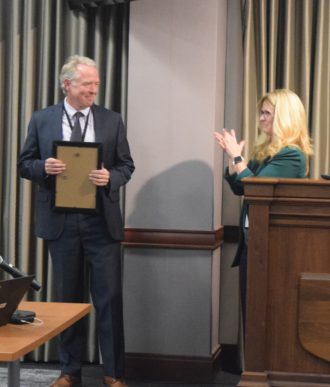

Buncombe County Board of Commissioners approved $1.5 million for rental assistance and expanded emergency housing within the county in response to Tropical Storm Helene.
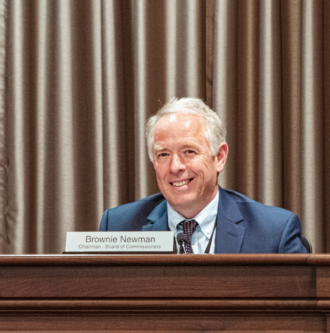
When Buncombe County Commission Chair Brownie Newman first walked out of his house that Friday morning after the wind died down, he was hopeful the effects of Tropical Storm Helene wouldn’t be that bad. Then he walked one block over to Pearson Drive. This wasn’t the way Newman thought he’d end his 12 years on the county commission.
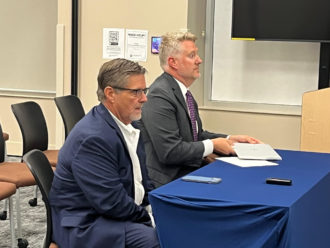
Buncombe County Board of Commissioners fired its tax assessor R. Keith Miller for a conflict of interest involving buying a South Carolina condominium with an employee under his supervision.
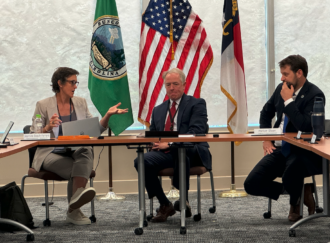
Buncombe County Board of Commissioners reviewed $3.6 million in funding requests that would expand low-barrier homeless shelters, which do not require ID or sobriety, and are open 24/7.

The Buncombe County Board of Commissioners voted 6-0 on June 18 to approve a $440 million general fund budget for fiscal year 2024-25. Chair Brownie Newman said the decision to raise taxes is not easy, and this was the toughest budget season he’s been through in his 12 years on the commission.
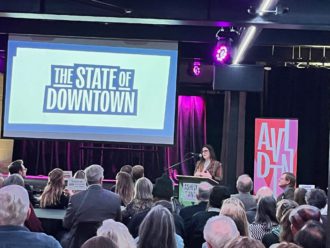
The mayor shared her enthusiasm about a potential business improvement district, or BID, in the city’s downtown.

Community members who spoke with Xpress say they are relieved that the Swannanoa Library has been saved from the chopping block for now. But many questions still remain about its future as well as who will be involved in the decision-making process moving forward.
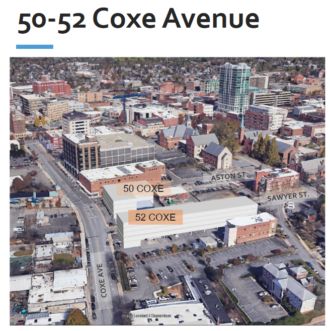
Nearly 480 affordable housing units could be built on property owned by Buncombe County, according to a new analysis shared with the county Board of Commissioners.
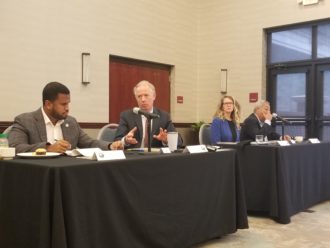
Buncombe first hired Ward and Smith last May, agreeing to pay the firm $72,000 annually to advocate for the county’s interests at the state legislature. A Jan. 30 gathering at the DoubleTree hotel in Biltmore Village marked the first extended public discussion of the lobbyists’ work since that contract was inked.
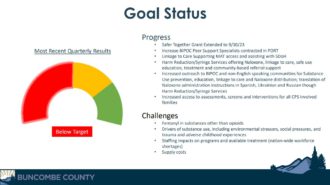
A quarterly update on the county’s strategic plan, shared with the Board of Commissioners during a Dec. 5 briefing, showed that three of the plan’s four primary goals in that area are not on track with county targets. Substance abuse deaths in particular have worsened since the plan was adopted in 2020.

An action plan county staffers presented to the Board of Commissioners Oct. 18 includes steps to help owners of cheaper homes seek reductions if they think the county has valued their homes too highly, to get property owners to report when they upgrade their homes and to refine some aspects of how Buncombe’s appraisers do their jobs.
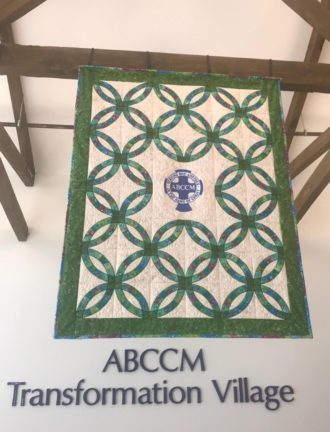
As presented to the county Board of Commissioners Nov. 15 by Jennifer Teague, Buncombe’s aging and adult services program manager, the Asheville-Buncombe County Homeless Coalition called the first Code Purple of 2022 on Oct. 15 — the first day this year’s program went into effect. After evaluating the results of that first night, the coalition decided to extend entry times for Code Purple shelters.
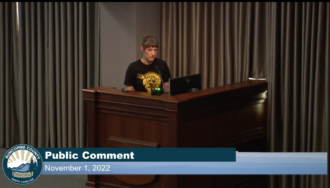
The initiative will make 150 spaces in the county’s Coxe Avenue garage available to low-income downtown employees at $40 per month — less than half the current $85 monthly rate — by the end of the year.
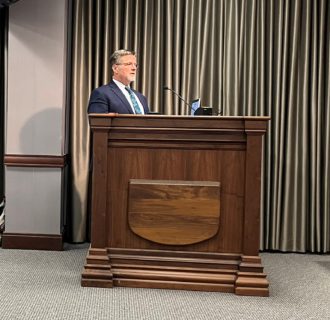
The county plans to spend $844,000 on new tax assessment initiatives over this fiscal year and the next. Actions include asking Buncombe residents to report improvements to their homes, buying software to double-check the valuations county staffers give to homes and reaching out to residents to help them challenge their property tax values.
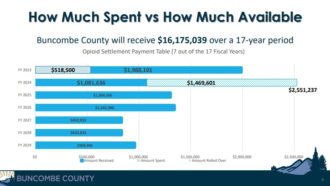
Buncombe behavioral health manager Victoria Reichard noted that the county has received roughly $2 million of a more than $16 million lawsuit settlement, negotiated with pharmaceutical companies over their role in the opioid epidemic, this fiscal year. Of those funds, a county team has recommended about $518,000 in immediate spending.

The county may offer reduced monthly parking passes in its Coxe Avenue parking deck, cutting the monthly cost to rent a space in that garage from $85 to $40 for employees who work within about a mile of Pack Square.
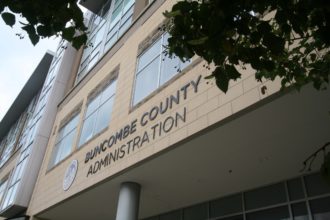
The resolution would take effect if either or both of the bond referendums up for November votes were approved. The oversight committee would monitor investments made with up to $70 million in bond money and ensure the funds were being used to meet Buncombe’s goals: conserve 20% of county land and increase affordable housing by up to 3,150 units, both by 2030.
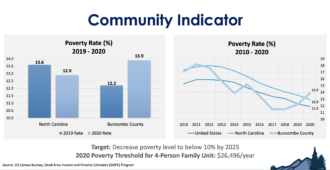
According to data presented by Tim Love, Buncombe’s director of economic development and governmental relations, the county’s poverty rate went up from about 11.5% in 2018 — its lowest point in a decade — to about 13.9% in 2020, the latest year for which information was available. Poverty in both North Carolina and the overall U.S. fell over the same period.
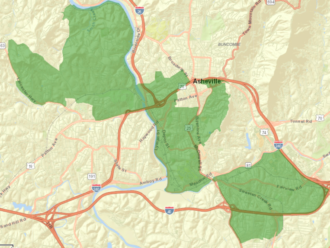
Opportunity zones offer tax breaks to investors who put money to work in areas designated as economically depressed — including parts of every Western North Carolina county. The latest edition of Xpress’ WTF feature takes a deeper look into the significance and consequences of the program.

The county’s ad hoc reappraisal committee, tasked with reviewing allegations that Buncombe’s tax assessment process was unfair to low-income residents and communities of color, presented its recommendations to the board. And commissioners approved annual funding for reparations, honoring a request from the joint Asheville-Buncombe Community Reparations Commission.
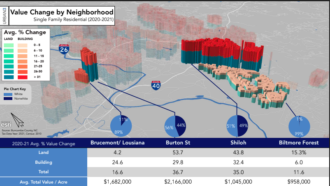
In response to a report by Asheville-based planning firm Urban3, Newman tasked county Tax Assessor Keith Miller with forming an ad hoc committee to provide guidance for future tax assessments and identify potential equity concerns. The committee presented its recommendations to the county July 19.